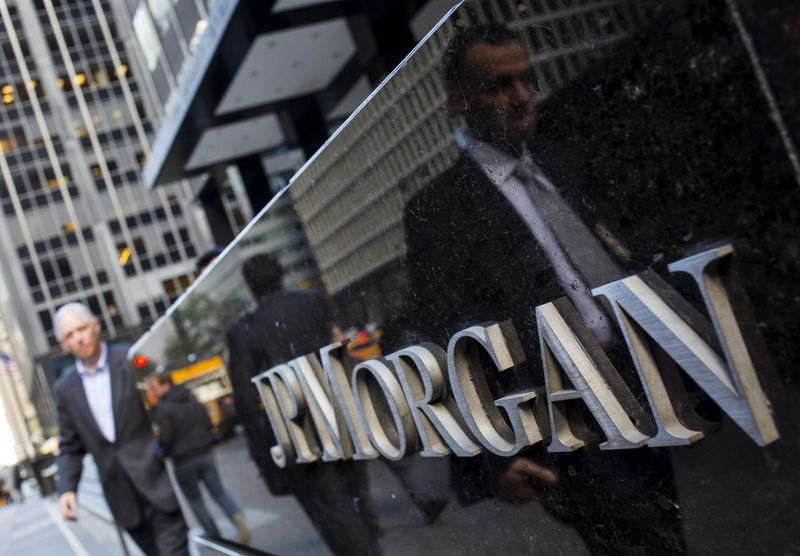Street Calls of the Week
Investing.com -- Jamie Dimon, the CEO of JPMorgan Chase (NYSE:JPM), warned investors about the potential economic impact of U.S. tariffs and global trade disputes. In his annual letter to shareholders, released on Monday, Dimon expressed concerns over the long-term economic alliances of the United States.
Dimon’s letter came after a market rout last week that erased trillions of dollars from global stock markets. He noted that the U.S. economy is facing significant turbulence, including geopolitical issues, the potential positives of tax reform and deregulation, and the potential negatives of tariffs and trade wars, ongoing inflation, high fiscal deficits, and volatility in asset prices.
Dimon, who has been at the helm of the largest U.S. bank for 19 years, suggested that these factors could slow down growth in the world’s largest economy, stimulate inflation, and potentially lead to lasting negative consequences.
The CEO also mentioned the possibility of inflationary outcomes. He questioned whether the tariffs would cause a recession, but stated that they would certainly slow down growth.
Dimon also pointed out the potential for retaliation by other countries and stated that tariffs could affect economic confidence, investments, capital flows, corporate profits, and the dollar. He urged for a swift resolution to this issue, stating that the negative effects would increase over time and could be hard to reverse.
Dimon, a prominent voice in corporate America, often shares his views on government policies and has been consulted by officials during crises. His name was considered for senior economic roles in the government during the 2024 presidential campaign, but he chose to remain at the bank.
The CEO also raised concerns about the impact of tariffs on the direction of interest rates. Despite recent declines due to a weaker dollar, he suggested that slower growth and a decreasing risk appetite could cause rates to rise, referring to the stagflation that occurred in the 1970s.
Dimon also expressed doubt about the expectations for modest U.S. growth, known as a soft landing. He wrote, "We enter this time of uncertainty with high equity and debt prices, even after the recent decline ... markets still seem to be pricing assets with the assumption that we will continue to have a fairly soft landing. I am not so sure."
This article was generated with the support of AI and reviewed by an editor. For more information see our T&C.
